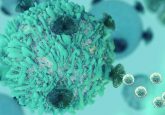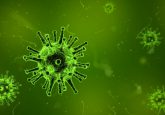Vaccine demonstrates ability to eradicate precancerous cervical lesions

An investigational vaccine generated utilizing a novel synthetic platform has been proven to eliminate precancerous cervical lesions in almost half of the women involved in a small clinical trial. Details of the study and the vaccine, described as the first of any type to eradicate a pre-existing infection, appeared recently in The Lancet.
Developed by Inovio Pharmaceuticals Inc. (PA, USA), the goal of developing therapies such as this vaccine is to ultimately uncover a nonsurgical method of treating these precancerous legions, which are a result of human papillomavirus infection.
“Every standard therapeutic option for women with these lesions destroys part of the cervix, which is particularly relevant for women of childbearing age, who may then be at risk for preterm birth due to a weakened cervix,” commented first author Cornelia Trimble of Johns Hopkins University School of Medicine (MD, USA). “A vaccine able to cure precancerous lesions could eventually be one way women can avoid surgery that is invasive and can also harm their fertility.”
The nonliving, synthetic vaccine was developed to encourage the immune system to recognize precancerous and cancerous tissues and to generate powerful T-cell responses against them.
Between 2011 and 2013, the team recruited 167 women, aged 18–55 years, with newly diagnosed, high-grade precancerous cervical lesions. The women were randomized to receive either three doses of the vaccine or saline over a 12-week period, across locations in the US and six other countries.
Of 114 women who received at least one vaccine dose, 55 had a regression of their precancerous lesion, i.e., their lesions disappeared or converted to low-grade lesions, compared with 12 of 40 who received saline injections.
Overall, 107 women received all three vaccine doses, and 53 of them had regression of their lesions. Of the 40 in the saline group, 36 got all three injections, and 11 of them had regression of their lesions.
“We are delighted that this study reports that this DNA vaccine was well tolerated, generated potent antitumor killer T cells, which eliminated the cancer-causing virus, as well as precancerous lesions in many of this large group of women,” commented David Weiner of Penn Medicine (PA, USA), in whose lab the vaccine was originally created. “We believe that this novel platform is also important to explore to control more aggressive cancers.”
Sources: Penn Medicine press release; Johns Hopkins University School of Medicine press release





